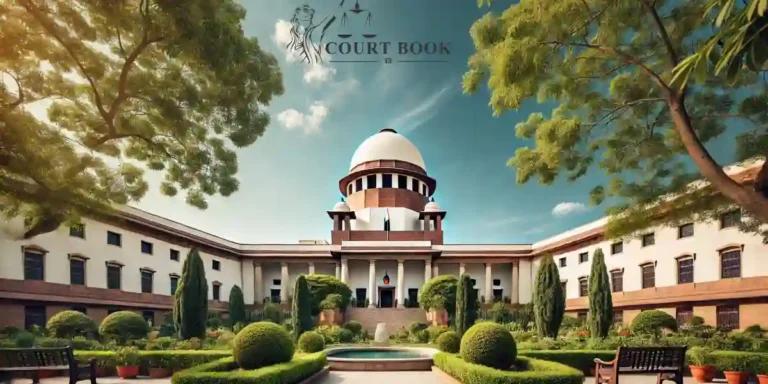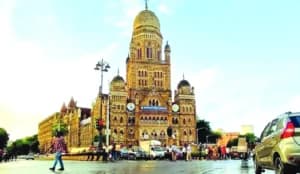In a crucial development regarding the alleged builder-bank nexus in the National Capital Region (NCR), the Supreme Court has called for a proposal from the Central Bureau of Investigation (CBI) to outline how it plans to conduct the probe. The Court has also appointed an Amicus Curiae to assist in the matter.
A bench comprising Justices Surya Kant and N. Kotiswar Singh has directed the CBI to submit a detailed proposal within two weeks. The Court emphasized that vast sums—ranging between 60% to 80% of total project funds—had been disbursed by banks without even a single brick being laid at several construction sites.
During the hearing, the Additional Solicitor General (ASG) Aishwarya Bhati, appearing for the CBI, informed the Court that discussions had already taken place with the Ministry of Housing and Urban Affairs and CBI officials. While the Court may direct a probe, she cautioned that the investigation could be extensive due to the sheer volume of cases.
Read Also:- Supreme Court's Ruling Awaited: Gujarat & Karnataka High Courts Halt Civil Judges' Recruitment
Justice Kant firmly stated:
"Your fault is that knowing very well that not even a brick has been laid at the site, you are releasing 60%, 70%, 80%... Is it possible without any quid pro quo!? How can we accept that the officers' hands are clean?"
He further expressed deep skepticism regarding the role of banks in these transactions:
"We will not certify a single bank free from doubt... The kind of dealings they engage in is not new to us."
Acknowledging the complexity of the issue, the Supreme Court has appointed Rajiv Jain as Amicus Curiae. His expertise in legal and investigative matters will be instrumental in assisting the Court. The bench directed him to submit recommendations on the best approach to move forward with the investigation.
Justice Kant remarked:
"Mr. Rajiv Jain can be the best person to assist in this matter. We need an independent agency to look into this and submit a report."
The case revolves around the grievances of homebuyers in NCR who have been forced to continue paying EMIs for properties they never received possession of, owing to construction delays. The Supreme Court had previously indicated that some real estate companies and banks had collectively taken advantage of unsuspecting buyers.
The Court noted that under subvention schemes, banks had directly disbursed loans to developers, violating RBI regulations. Once builders defaulted on payments, banks turned against homebuyers, forcing them to bear the financial burden for projects that never materialized.
The homebuyers stated in their plea:
"The homebuyer herein is pushed into litigation for an amount he has never seen or actually received. Both builders and banks have violated the tripartite agreement and RBI/NHB statutory guidelines. There exists no legal framework to protect homebuyers when real estate developers default and insolvency proceedings are initiated, while banks continue charging EMIs."
During the proceedings, Senior Advocate Abhishek Manu Singhvi, representing one of the financers, argued that some financers had acted in good faith and were not at fault. However, Justice Kant rejected this argument, stating that banks knowingly released massive funds despite zero construction progress.
Senior Advocate Mukul Rohatgi and Singhvi attempted to persuade the Court to appoint an Amicus Curiae as an initial step rather than immediately involving the CBI. However, Justice Kant maintained that the Court would not dictate the CBI’s approach but would grant it complete autonomy once the investigation begins.
Justice Kant firmly stated:
"We are not here to certify any institution as good or bad. CBI, we will definitely refer. Thousands of people are crying, and we cannot ignore their plight. Something very effective must be done in a time-bound manner."
When some counsels suggested involving state police instead of the CBI, the Court rejected the idea, citing limitations in state police investigations.
Read Also:- Supreme Court Appoints Committee to Assess Private Schools' Financial Status on Fee Refund Issue
Justice Kant remarked:
"We have some reservations about state police. They have their own limitations. We have no reason to doubt CBI’s expertise in such matters. If additional assistance is needed, we will provide it."
Senior Advocate Ranjit Kumar, appearing for HDFC Bank, highlighted recent reports from the National Housing Bank (NHB) on the housing industry. He argued that these reports should be reviewed before making a final decision. Singhvi also suggested that an inquiry could be conducted by the Reserve Bank of India (RBI) instead of the CBI.
However, Justice Kant dismissed this suggestion, stating:
"RBI does not have an investigative team to examine the conduct of bank management officials."
Eventually, the Court ruled that a CBI probe into the matter was non-negotiable. The bench emphasized that if any party was found to have acted in good faith, they would not be targeted. However, those found guilty would face strict legal action.
Read Also:- Supreme Court Rules Money Laundering Remains An Ongoing Offence Under PMLA
Justice Kant cautioned:
"We hope there is no mafia involved, but if at this stage nothing is done, we don’t want to use the word."
Background of the Case
The case, Himanshu Singh and Ors. vs. Union of India and Ors. (SLP(C) No. 7649/2023), stems from multiple complaints by homebuyers in NCR. Many buyers had invested in housing projects under a subvention scheme, wherein banks continued charging EMIs despite developers defaulting and construction remaining incomplete.
In July 2024, a bench of Justices Kant and Ujjal Bhuyan provided interim protection to homebuyers, stating that no coercive action—including Section 138 proceedings (cheque bounce cases)—should be taken against them by banks or builders.
The matter is now awaiting the submission of the CBI’s proposal and further directions from the Supreme Court.
Case Title: HIMANSHU SINGH AND ORS. Versus UNION OF INDIA AND ORS., SLP(C) No. 7649/2023















